Capacity building
All SAA activities are focused on capacity building for human resources, such as farmers, extension workers and stakeholders along the agricultural value chain including agro-dealers and local fabricators of agricultural machineries, as well as institutions such as farmer organizations (cooperatives, women groups etc.), universities, and agricultural extension systems. Capacity building is implemented through training sessions, demonstrations and workshops and it is the key to sustainable agricultural development.
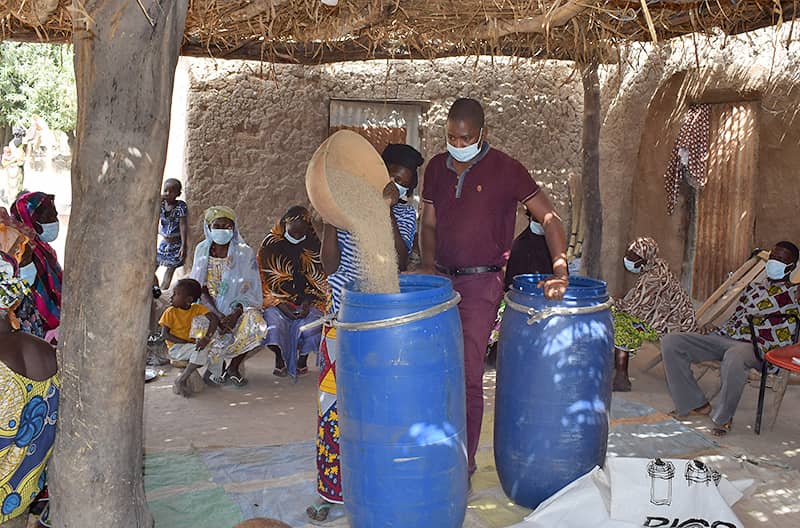
Demonstration of hermetic storage of sorghum, Mali
Human resource development of extension workers
at universities/colleges
While SAA's activities are mainly on-site training, SAA also establishes partnerships with universities and colleges to support the training of front-line mid-career extension workers and high school graduates.
By working together with partner institutions, SAA develops practical curricula across the entire value chain. Topics cover a range of subjects addressing the needs of rural communities, including climate change-responsive agriculture, gender, nutrition and communication.
This project was originally carried out by SAA’s sister organization, the Sasakawa Africa Fund for Extension education (SAFE), since its inception in 1991. SAFE was merged with SAA in 2018 and now the program is carried out by SAA – it is currently implemented as a "SAFE program" in partnership with 31 Universities and Agriculture Colleges in 11 countries. As of 2022, over 6,700 students have graduated from the program and more than 2,000 students are currently enrolled.
The SAFE program produces easy-to-understand teaching material and modules, with students also learning effective teaching methods for farmers. In addition, practical research aimed at solving problems faced by rural communities, called the "Supervised Enterprise Project (SEP)," is an essential area of study for all students as SEP enables them to learn practical methods to address the needs of the communities.
List of partner universities and student statistics
(As of July 2022)
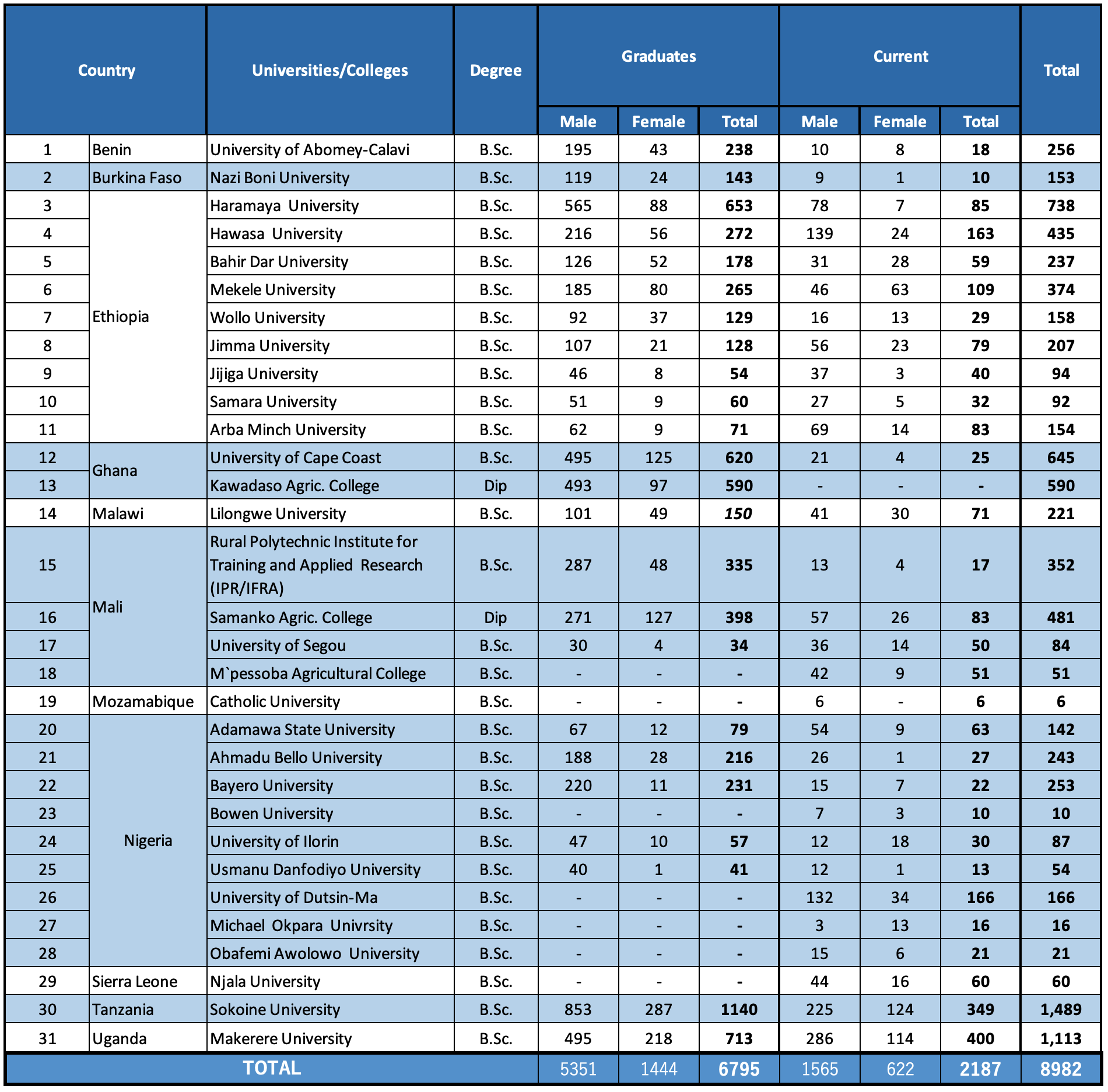
List of partner universities and student statistics (PDF)
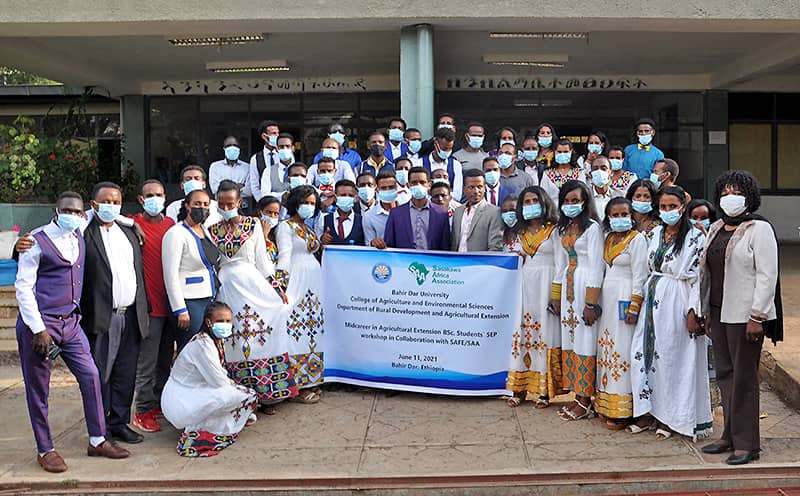
Final year students of Bahir Dar University with lecturers and SAA staff during SEPs workshop, Ethiopia
Voices from the Fields
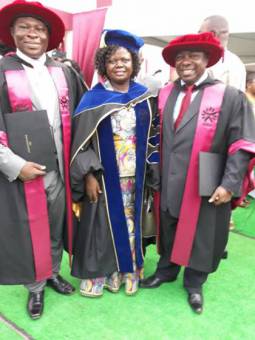
“I’m really grateful” – the success story of Dorothy Anima Effa, one of SAFE’s first graduates
This edition of Voices from the Field was written and supplied by Joseph Kwesi Sarpong, a Ghanaian national who was also among the first intake of SAFE students in 1993.
An appraisal carried out by SAA in 1992 found that 83% of Extension Officers in Ghana were largely certificate holders from agricultural colleges. The Sasakawa Africa Fund for Extension (SAFE) program was launched in 1993 to support the development of Extension Officers beyond the academic qualifications they had acquired f...
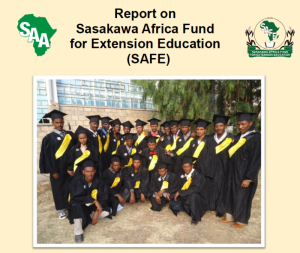
[SAA Publication] Report on Sasakawa Africa Fund for Extension Education (SAFE)
Report on Sasakawa Africa Fund for Extension Education (SAFE) has been published.
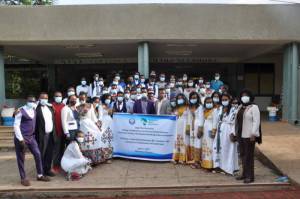
55 midcareer students of Bahir Dar University, Ethiopia presented their Supervised Enterprise Projects (SEPs)
Supervised Enterprise Projects (SEPs) is a unique aspect of SAFE program which requires the students to work on action-based research with an aim to solve problems encountered by farming communities.
SAA Publications
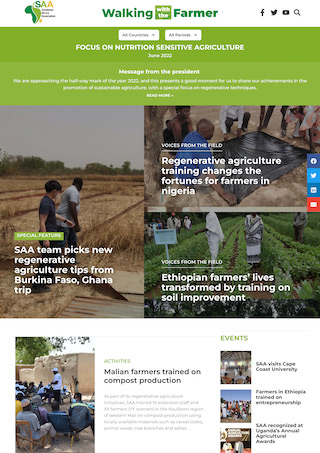
E-newsletter
"Walking with the Farmer"
SAA publishes a bimonthly e-newsletter reporting on SAA activities.
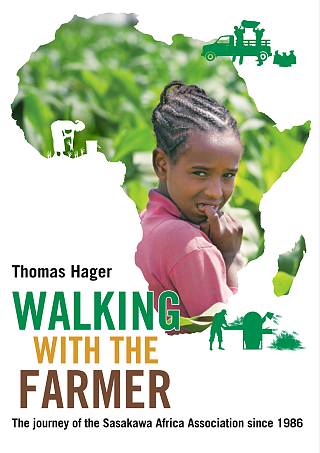
SAA history book
"Walking with the Farmer: The journey of the Sasakawa Africa Assoication since 1986"
This book chronicles the history of SAA from its inception to the present.

Annual Report
Annual Report FY2023
Annual Report FY2023 is available here.





